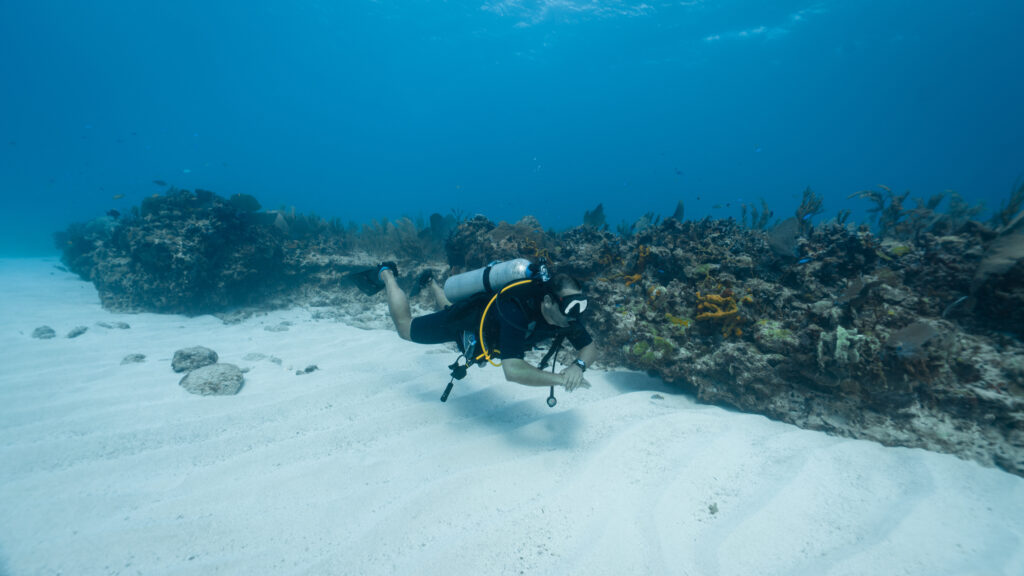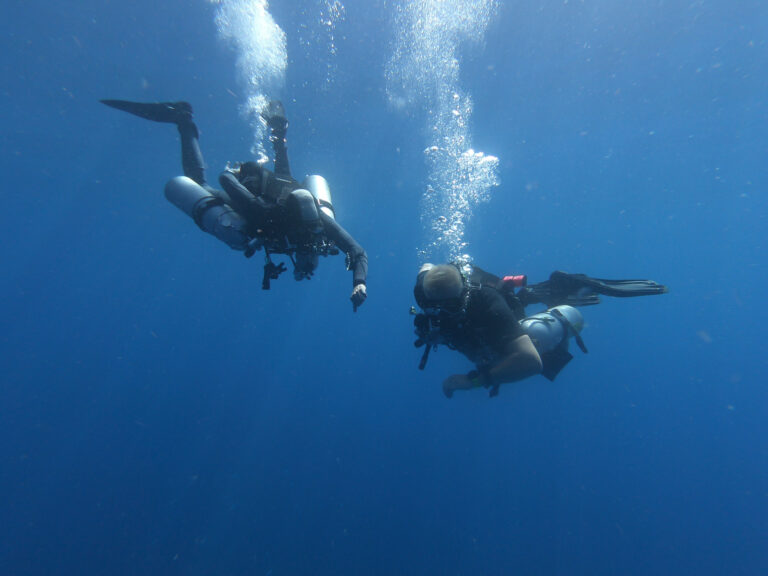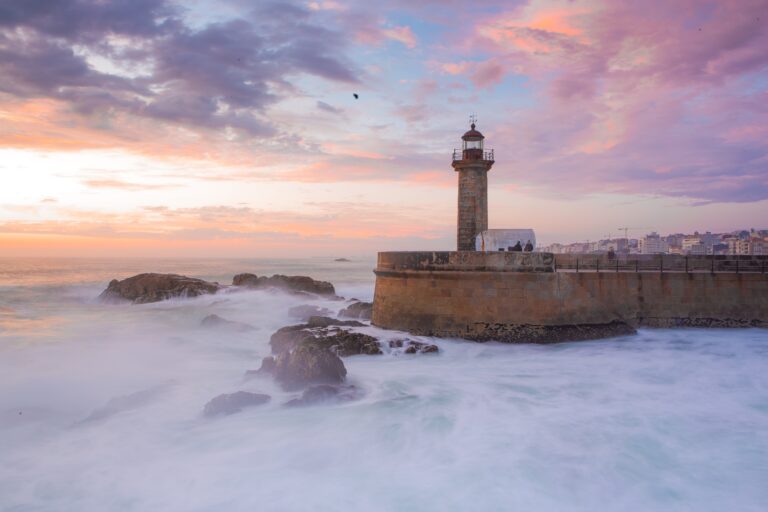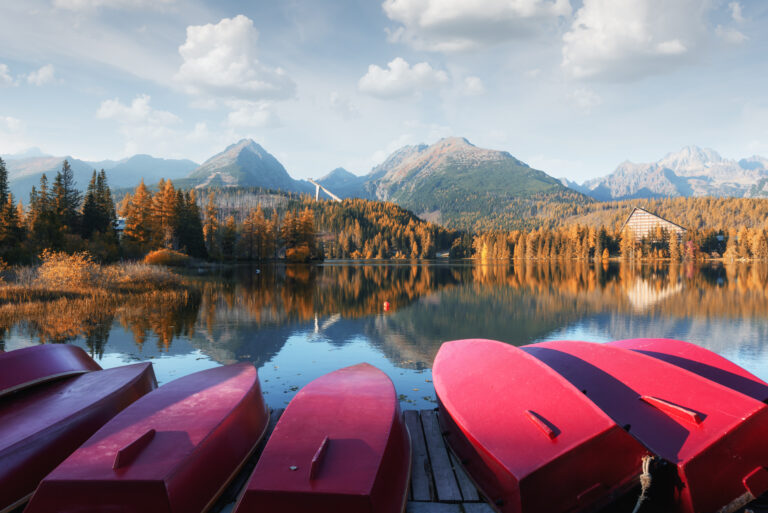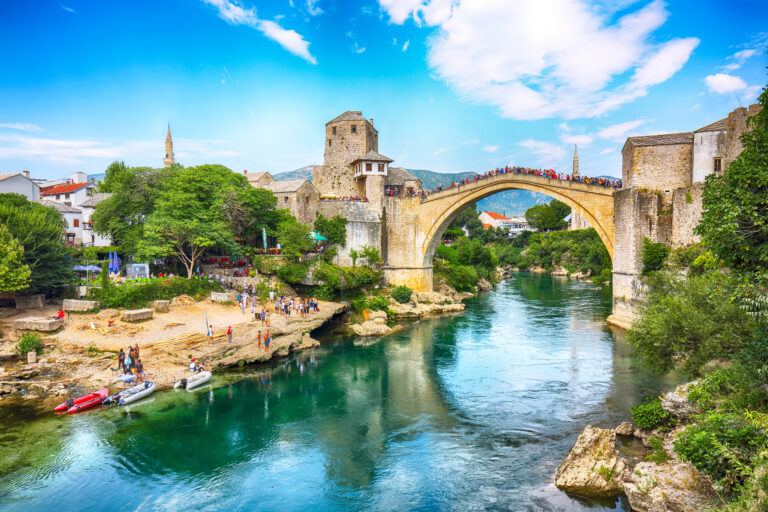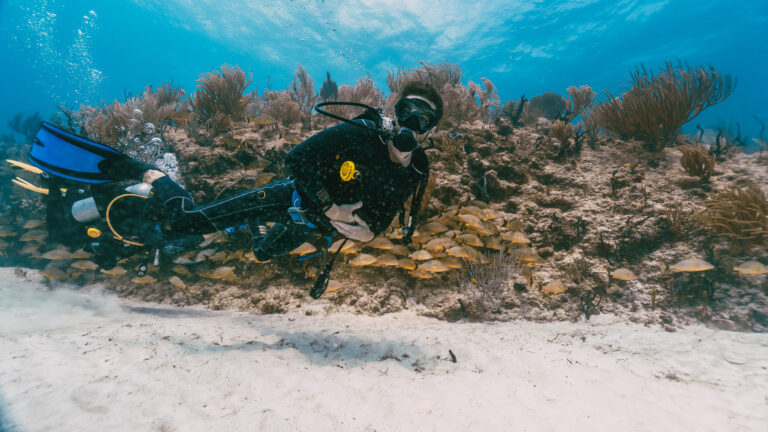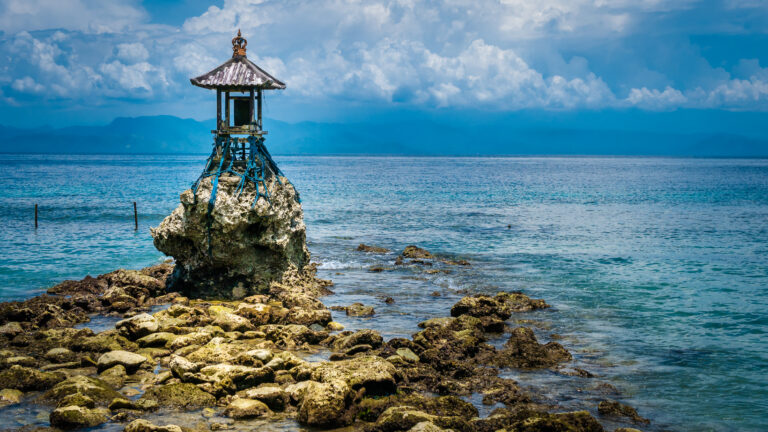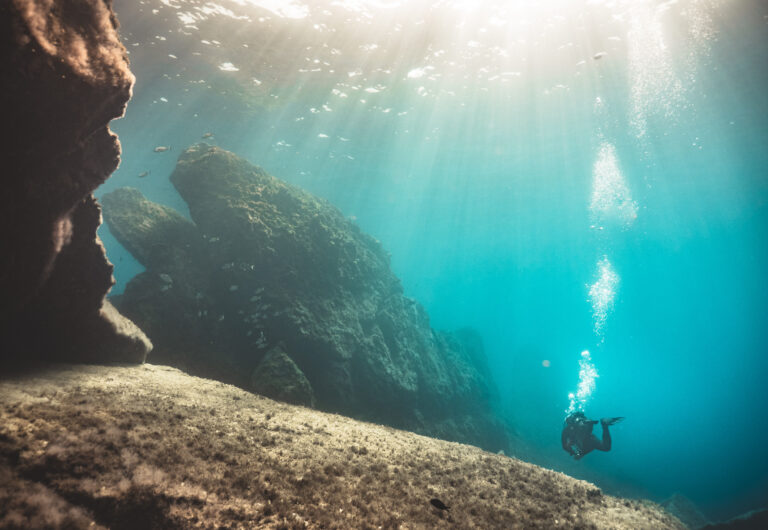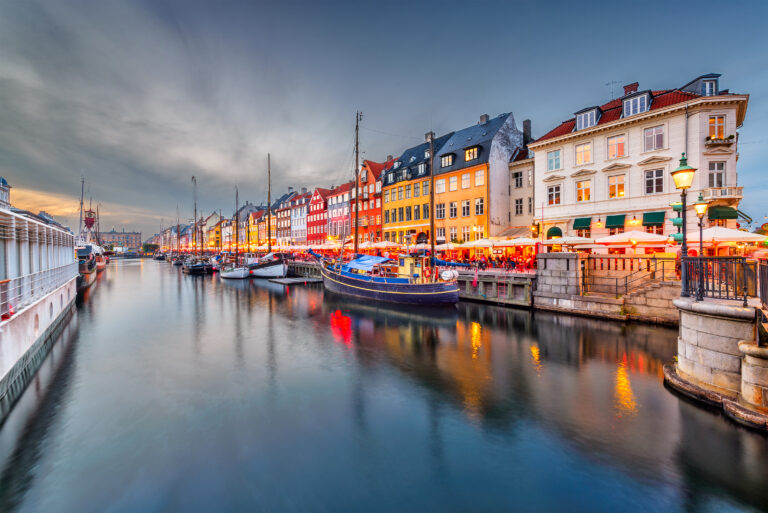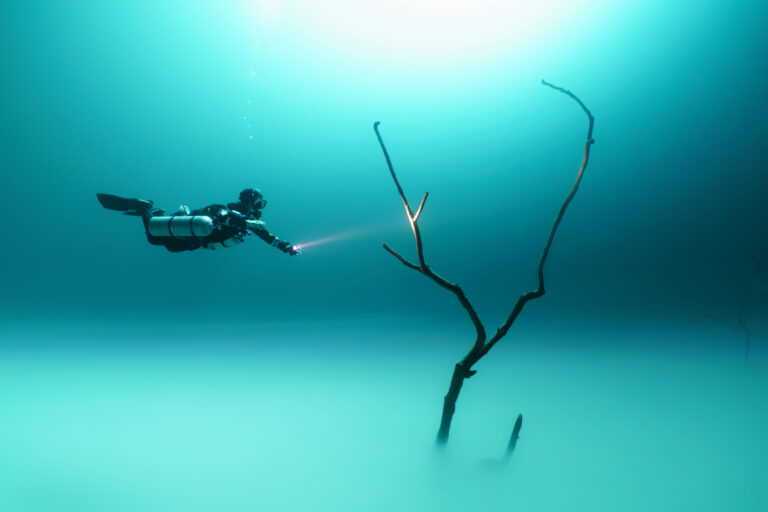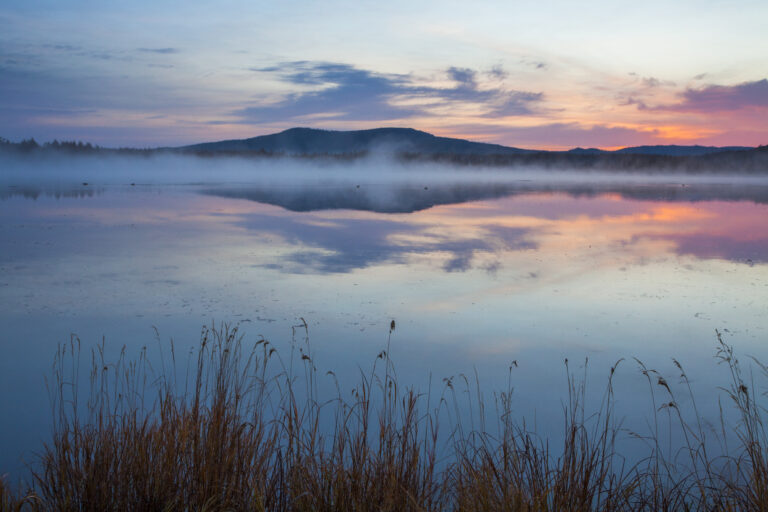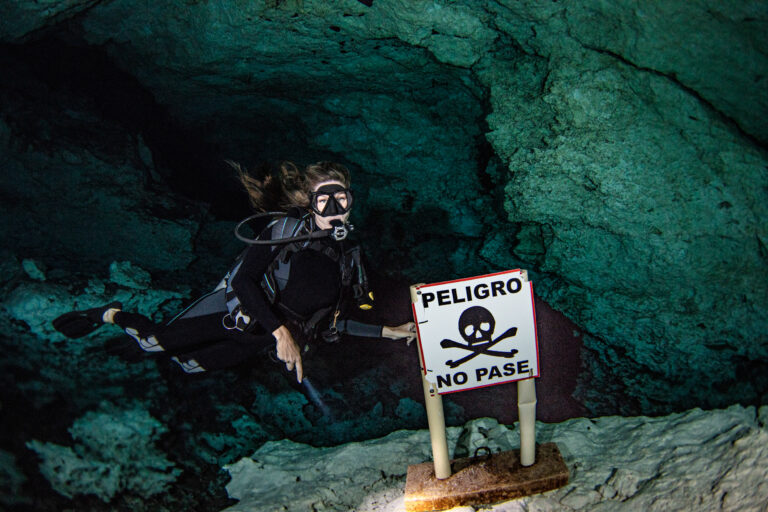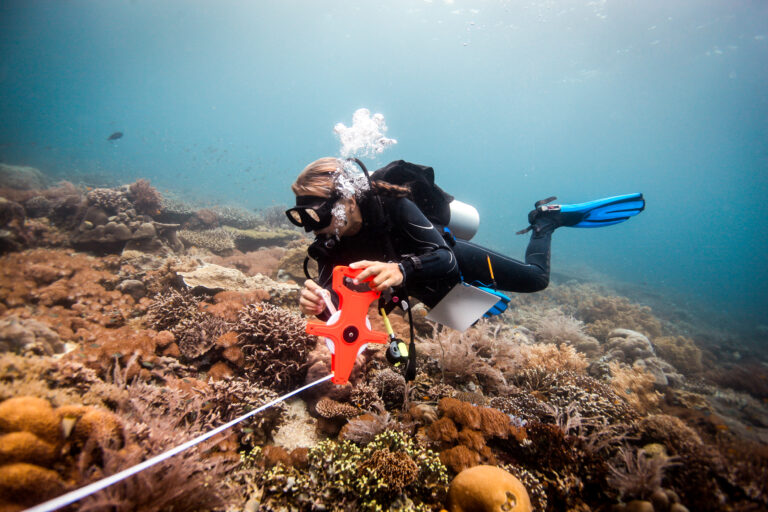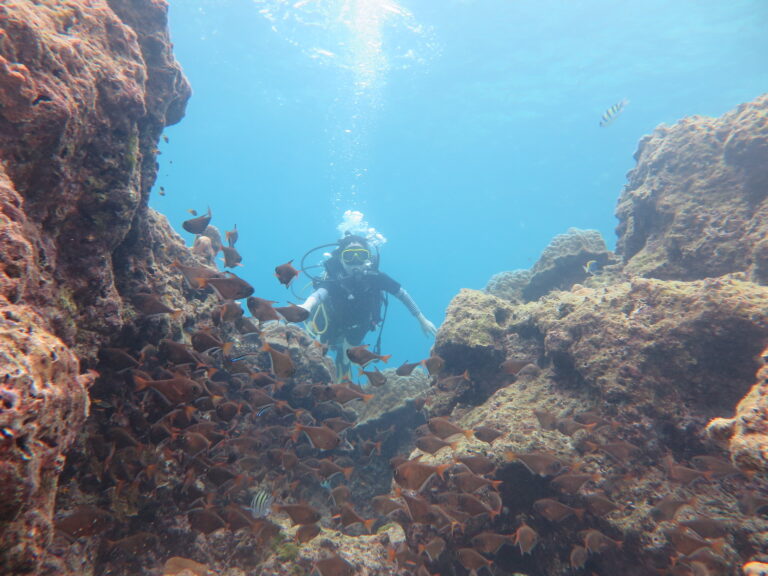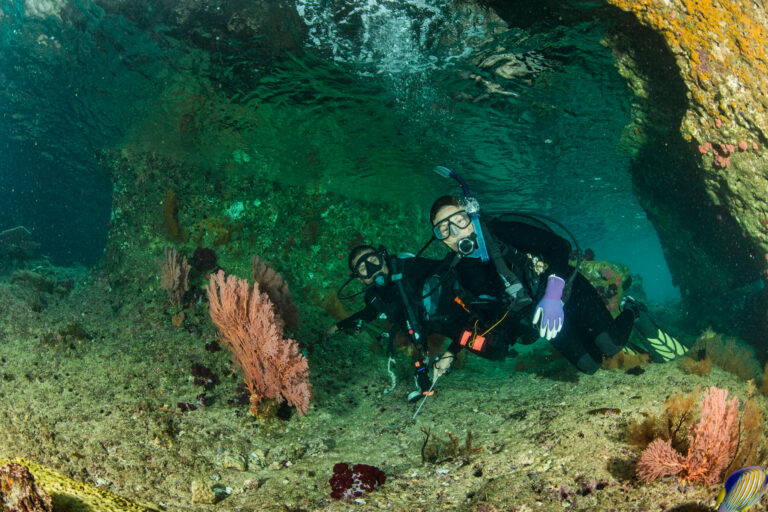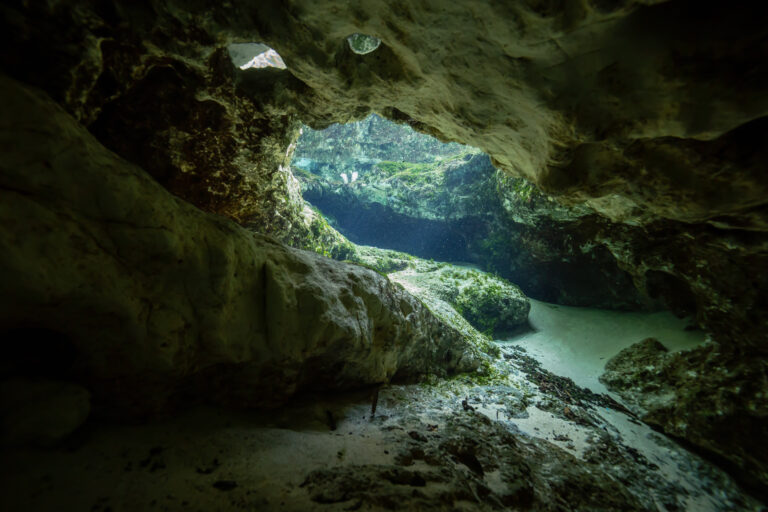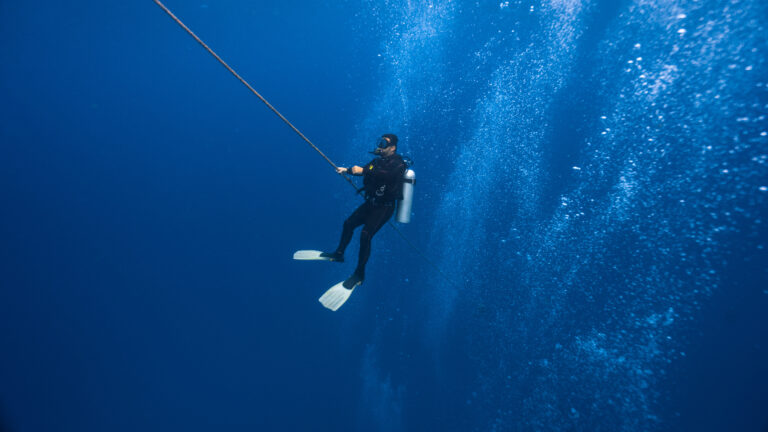Scuba Divers’ Travel Guide to Samoa
Samoa, located in the South Pacific, offers scuba divers a vibrant and diverse underwater world. The clear, warm waters are home to colorful coral reefs, tropical fish, and larger marine species such as turtles and rays. The islands’ diverse dive sites provide a range of experiences, from shallow lagoons to deeper offshore reefs. Samoa’s rich cultural heritage and stunning natural beauty make it an enticing destination for scuba travelers. With its pristine marine environments and welcoming atmosphere, Samoa promises an unforgettable diving adventure.
Location and Geography
Nestled in the heart of the South Pacific, Samoa is an enchanting archipelago that beckons scuba divers with its warm, turquoise waters and a plethora of underwater treasures. Comprising two main islands, Upolu and Savai’i, along with several smaller islets, Samoa is situated roughly halfway between Hawaii and New Zealand. This tropical haven boasts a dramatic landscape with volcanic origins, where rugged coastlines give way to lush rainforests and cascading waterfalls. Beneath the waves, the Samoan seascape is equally impressive, featuring a vibrant coral ecosystem that thrives in the nutrient-rich currents. Divers can explore a myriad of dive sites, including plunging walls, coral gardens, and intriguing wrecks, all teeming with marine life. The surrounding reef systems provide sanctuary to a diverse array of species, from the tiniest of reef fish to the occasional visiting pelagic. Samoa’s relatively remote location means that its underwater realms are pristine and often uncrowded, offering an intimate and authentic diving experience in the heart of Polynesia.
Visa and Entry Requirements
Before embarking on your underwater adventure to the stunning coral reefs of Samoa, it is essential to understand the visa and entry requirements for this tropical paradise. Travelers from countries that do not have a visa exemption agreement with Samoa must apply for a visitor’s permit before arrival or upon entry, which is typically valid for up to 60 days. Visitors from visa-exempt countries, including the United States, Canada, New Zealand, and several European nations, can obtain a permit upon arrival, provided they have a return or onward ticket, a valid passport for a minimum of six months beyond the intended stay, and proof of sufficient funds. It is advisable to check the latest requirements with the Samoan consulate or embassy well in advance, as regulations can change. Additionally, ensure that your travel insurance covers scuba diving activities, as this is a prerequisite for entry for divers. With the paperwork in order, you can look forward to exploring the underwater treasures of Samoa with peace of mind.
Getting to Samoa
Traveling to the tropical paradise of Samoa for an unforgettable scuba diving adventure is a journey that will take you to the heart of the South Pacific. International visitors typically fly into Faleolo International Airport (APW), located on the main island of Upolu, which is well-connected with flights from New Zealand, Australia, Fiji, and other Pacific nations. Upon arrival, you can either take a short domestic flight or a scenic ferry ride to reach the second major island, Savai’i, known for its pristine dive sites. Car rentals and taxis are readily available at the airport for transport to your accommodation and dive centers. Ensure you have your travel documents in order, including a valid passport and any necessary visas or permits. Samoa’s warm, welcoming culture and the ease of island transfers make it an accessible and enticing destination for divers seeking vibrant coral reefs, diverse marine life, and the serene beauty of the South Pacific.
Best Time to Dive
Traveling to the tropical paradise of Samoa for an unforgettable scuba diving adventure is a journey that will take you to the heart of the South Pacific. International visitors typically fly into Faleolo International Airport (APW), located on the main island of Upolu, which is well-connected with flights from New Zealand, Australia, Fiji, and other Pacific nations. Upon arrival, you can either take a short domestic flight or a scenic ferry ride to reach the second major island, Savai’i, known for its pristine dive sites. Car rentals and taxis are readily available at the airport for transport to your accommodation and dive centers. Ensure you have your travel documents in order, including a valid passport and any necessary visas or permits. Samoa’s warm, welcoming culture and the ease of island transfers make it an accessible and enticing destination for divers seeking vibrant coral reefs, diverse marine life, and the serene beauty of the South Pacific.
Accommodation Options
In the heart of the South Pacific, Samoa’s lush landscapes and pristine waters beckon scuba divers to explore its underwater wonders, and the accommodation options available cater to a range of preferences and budgets. From luxurious beachfront resorts offering dive packages and gear rental services to cozy, family-run fales (traditional Samoan huts) just steps away from the ocean, there’s a place for every traveler to rest after a day beneath the waves. Many accommodations are strategically located near popular dive sites, ensuring that divers can maximize their time submerged in Samoa’s vibrant coral reefs and rich marine life. For those seeking a more immersive experience, some resorts provide PADI-certified courses and excursions to hidden underwater treasures, all while ensuring comfort and convenience with amenities such as on-site restaurants, spas, and cultural entertainment. Whether you’re a solo adventurer or traveling with companions, Samoa’s warm hospitality and diverse lodging options promise a memorable stay above and below the sea.
Dive Operators and Dive Shops
In the heart of the South Pacific, Samoa’s warm, clear waters beckon divers to explore its underwater treasures, and the local dive operators and shops are the gatekeepers to this aquatic paradise. With a reputation for friendly service and extensive local knowledge, Samoan dive shops offer a range of services from PADI certification courses to guided tours of the archipelago’s most breathtaking sites. Whether you’re looking to swim through the colorful coral gardens of Palolo Deep Marine Reserve, encounter the myriad of marine life in the submerged volcanic crater at A’ufaga, or explore the mysterious wrecks that lie beneath the waves, these operators ensure a safe and memorable experience. They typically provide well-maintained equipment, comfortable boats, and experienced guides who prioritize safety while sharing stories of Samoan culture and marine conservation. Booking a dive with one of Samoa’s reputable operators not only promises an unforgettable underwater adventure but also supports the local economy and the preservation of the island’s natural beauty.
Transportation within Samoa
Transportation within Samoa offers a blend of traditional and modern options, catering to the needs of scuba divers and other travelers. Upon arrival at Faleolo International Airport on Upolu, visitors can rent cars from reputable agencies, providing the freedom to explore dive sites at their own pace. For those preferring not to drive, taxis are readily available, and it’s advisable to agree on fares beforehand. Samoa’s two main islands, Upolu and Savai’i, are connected by regular ferry services, which also accommodate vehicles for those looking to extend their diving adventures. The local buses, characterized by their vibrant decorations and open windows, offer an authentic and affordable way to travel between towns and villages, though they may not always be convenient for carrying bulky dive gear. For more remote or less accessible dive locations, arranging private transfers or joining organized tours from dive operators can ensure a smooth journey, allowing divers to focus on the stunning underwater experiences that await in Samoa’s warm, clear waters.
Currency and Payment Methods
In the tropical paradise of Samoa, the official currency is the Samoan Tālā (WST), which is essential for local transactions, especially in smaller villages or remote areas where scuba diving gems are often found. While major hotels, dive shops, and some restaurants in urban centers like Apia may accept credit cards, it’s advisable for divers to carry sufficient cash for expenses such as park fees, tips, and services in less commercialized dive spots. ATMs are available in larger towns, but can be scarce on more secluded islands, so it’s prudent to withdraw cash before venturing out. Additionally, it’s a good idea to have small denominations on hand for easier transactions. Traveler’s checks are not commonly used, so visitors should rely on cash and cards instead. Always check with your bank for international transaction fees to avoid surprises. Remember, while the underwater world accepts only the currency of awe and wonder, on land, the Tālā reigns.
Language and Communication
When traveling to Samoa for scuba diving, it’s important to note that the official languages are Samoan and English, with Samoan being the most widely spoken among the local population. English is commonly used in business, tourism, and by the local diving operators, so English-speaking divers will find it relatively easy to communicate while arranging dives and during briefings. However, embracing a few basic Samoan phrases can greatly enhance your interaction with the local community and show respect for their culture. Simple words like “Talofa” (hello), “Fa’afetai” (thank you), and “Tofa” (goodbye) can go a long way. Underwater, divers communicate universally through hand signals, so regardless of language, safety and dive enjoyment are ensured. It’s also worth noting that many dive professionals in Samoa may have international backgrounds, further facilitating communication with divers from around the world.
Local Culture and Attractions
Samoa, a nation rich in Polynesian culture, offers scuba divers not only breathtaking underwater experiences but also a vibrant tapestry of traditions and attractions on land. After exploring the pristine coral reefs and encountering the diverse marine life, divers can immerse themselves in the local way of life by visiting traditional villages where the ‘fa’a Samoa’ – the Samoan way – flourishes. Engage with the warm and welcoming locals, witness the art of the ‘ava ceremony, and be captivated by the rhythmic dances and powerful chants of the ‘fa’ataupati’ (slap dance) and ‘siva’ (Samoan dance). Samoa’s natural beauty extends beyond the ocean with attractions such as the lush rainforests of O Le Pupu-Pu’e National Park, the dramatic blowholes of Alofaaga, and the serene Piula Cave Pool, a freshwater swimming hole located beneath a historic church. Samoa’s blend of cultural richness and natural wonders creates a uniquely holistic travel experience for any scuba diver seeking adventure above and below the waves.
Cultural Etiquette and Tips
When scuba diving in the enchanting waters of Samoa, it is essential to approach the local culture with respect and sensitivity. Samoan society is deeply rooted in Fa’a Samoa, the Samoan way, which emphasizes community, family, and respect for tradition and elders. Before diving, seek permission from the village or landowners if accessing the sea through traditional lands, as this is a sign of respect and often a requirement. Dress modestly when in villages or non-tourist areas, and be mindful of local customs, such as not walking through villages during the evening prayer curfew (Sa), typically from 6 pm to 7 pm. Engage with the local dive operators and guides with courtesy, and show appreciation for their knowledge and expertise. Remember to support the local economy by hiring local services and purchasing local goods. Lastly, be environmentally conscious, adhering to the ‘leave no trace’ principle, respecting marine life, and avoiding any actions that could damage the delicate coral reefs or disrupt the underwater ecosystem. By following these cultural etiquette and tips, you will not only enhance your diving experience in Samoa but also foster a positive and respectful relationship with the local community.
Local Laws and Regulations Relevant to Tourists
When planning a scuba diving trip to the enchanting waters of Samoa, it is crucial for tourists to acquaint themselves with the local laws and regulations to ensure a safe and lawful experience. Samoa’s marine environment is protected by various legislations aimed at conservation and sustainable use, and it is illegal to collect coral, certain shell species, or to fish without a proper license. Divers should be aware that many areas are designated as Marine Protected Areas (MPAs), where specific rules apply, including restrictions on fishing, anchoring, and collecting marine life. It is also important to respect village-based regulations, as some coastal waters are managed by local communities with their own guidelines, which may restrict diving activities to certain times or require special permissions. Tourists should always dive with a certified local operator who is familiar with these regulations. Additionally, divers must ensure that they are adequately certified for the dives they plan to undertake, as Samoa enforces international diving standards to promote safety. Failure to comply with these laws and regulations can result in fines or legal action, as well as harm to the delicate marine ecosystem Samoa is committed to preserving.
Safety Tips and Emergency Contacts
When planning a scuba diving trip to the enchanting waters of Samoa, safety should be your paramount concern. Always dive within your certification limits and ensure that your equipment is in excellent condition before embarking on any underwater adventure. It is crucial to be aware of local weather conditions and to avoid diving during cyclone season, which typically runs from November to April. Dive with a buddy and maintain clear communication throughout your exploration of Samoa’s vibrant reefs and marine life. In case of an emergency, it is essential to know that the local emergency contact number is 911, which is the same as in the United States. Additionally, the nearest hyperbaric chamber is located at the Tupua Tamasese Meaole Hospital in Apia, which can be reached at +685 21212. Always inform your dive operator of any medical conditions and ensure that they have emergency oxygen and first aid available on the dive boat. Remember to have dive insurance that covers hyperbaric treatment and emergency evacuation, as these services can be costly and logistically challenging in the remote beauty of Samoa.
Health and Travel Insurance
When planning your scuba diving adventure in the enchanting waters of Samoa, it is crucial to consider your health and travel insurance coverage. Given the remote nature of some dive sites and the potential for decompression sickness or other dive-related injuries, ensure that your policy includes comprehensive medical coverage, specifically for scuba diving incidents, and covers medical evacuation, which can be costly in the Pacific region. Samoa’s healthcare facilities are limited, particularly on the outer islands, and serious cases often require transfer to New Zealand or Australia. Additionally, check that your insurance covers trip cancellations, gear loss or damage, and any non-diving related medical emergencies. It’s advisable to carry proof of your insurance and a dive certification card with you at all times. By securing the right insurance, you can immerse yourself in the underwater marvels of Samoa with peace of mind, knowing you’re protected in case of unforeseen events.

